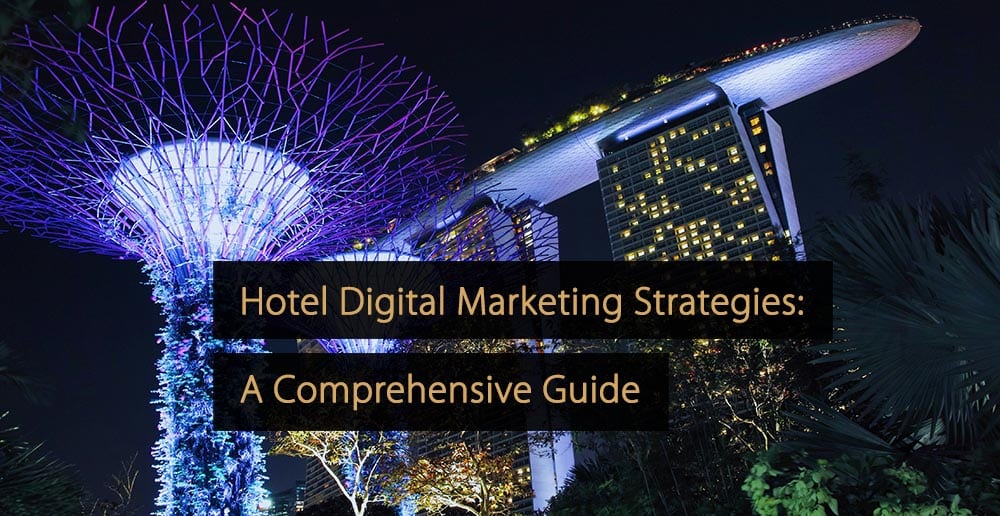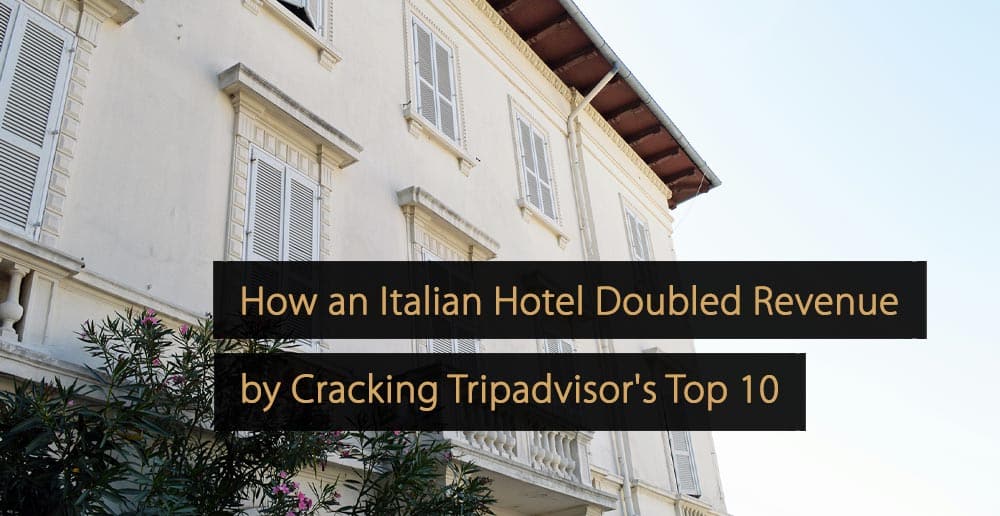Question for Our Revenue Management Expert Panel:
There is a growing need for hotels to be listed on multiple online platforms. What should Revenue Managers consider when deciding on where/where not to list? (Question proposed by Theresa Prins)
Industry Expert Panel
Our Industry Expert Panel exists out of professionals within the hospitality & travel Industry. They have comprehensive and detailed knowledge, experience in practice or management and are forward-thinking. They are answering questions about the state of the industry. They share their insights on topics like revenue management, marketing, operations, technology and discuss the latest trends.
Our Revenue Management Expert Panel
- Pablo Torres – Hotel Consultant, TSA Solutions
- Nikolas Hall – Owner, H. Hall Consulting
- Fabian Bartnick – Founder, Infinito
- Tanya Hadwick – Group Revenue & Yield Leader, SunSwept Resorts
- Daniel Feitosa – Revenue Management Specialist
- Silvia Cantarella – Revenue Management Consultant, Revenue Acrobats
- Heiko Rieder – Revenue Management Professional
- Massimiliano Terzulli – Revenue Management Consultant, Franco Grasso Revenue Team
- Jutta Moore – Director, Moore Hotel Consulting
- Mariska van Heemskerk – Owner, Revenue Management Works
- Nikhil Roy – Revenue Management Professional
- Daphne Beers – Owner, Your-Q Hospitality Academy
- Yash Taneja – Revenue Manager, IHG Hotels & Reports
- Ask Our Panel a Question
- Join Our Expert Panel
“There are two approaches here: The Pareto Law and the long tail strategy.
- If you follow the first one, 80% of your revenue comes from 20% of your accounts. Therefore, put 80% of your time and effort there.
- The second one however, focuses on the “long tail”: all those little platforms and channels that, added together, create a significant amount of Revenue.
My advice? Pareto rules!”
“To maximise revenue and take full advantage of any projected market growth, hoteliers must establish the right mix of direct and online booking channels. The choices are endless, yet it is crucial to make the right decisions.
There are a variety of factors that I use to influence my decision, for non-legacy OTA’s. It’s of vital importance to use a mixture of channels that meet the needs of your specific target audience (demographic, geographic). Some channels may also have higher costs or slimmer margins.
Your strategy should find a mix of visibility, profitability, and optimised brand messaging. You should continuously test new channels, optimise existing ones, and make sure that your legacy channels are delivering profitable results.
Your distribution strategy should not be static.”
“There are three parts to it:
- Effort maintaining that channel
- Potential of that channel bringing NEW customers
- Actual return over time.
This is not a case of quantity over quality, but quality over quantity. Before connecting, check on those three things and chances are you are going to decline most offers for listings… and that’s ok. My advice: Focus on those that make you money and those that will make you money!”
“I am not sure there is really an increasing need to be listed on multiple online platforms; it really does depend on the business model. Looking at Expedia and Booking – they have consolidated a lot of the online platforms that were around previously, so it becomes a question of reach – Does it fit with your target market/demographics/brand positioning? How much control do you have? What are the commercial terms? Do they work for you? Are they able to be managed seamlessly through a Channel Manager or do you need to manage the extranet manually?
While it is very tempting to think in terms of the ‘billboard effect’, is it time and cost effective? I think it’s also about being selective and finding the right partners for the business.”
“Choosing your partners should be a “win win” strategy. You must offer availability for those partners you need to get volume. A hotel should have partnerships that not only sell on high periods, but also periods you need; then this partner could get availability on High Demand (and the hotel shoudn’t close all the availability).
If the hotel doesn’t have a partner who brings demand when it is needsed it is OK to close the availability when demand is increasing. The main point to decide is: Will this partner/platform/website bring me incremental volume? Will it help me to get the position/value I want to show clients?
If so, it is the start of a good negotiation. Additionally, hotels need to track the production of the partnerships to better negotiate.”
“We must debunk the false myth that the more the channels, the more the sales. Moreover, nowadays it is very likely to find your hotel listed in some OTAs you don’t hold any contract with as they are sourcing inventory and rates from travel switches or other OTAs. The online presence and distribution of your property might be wider than you think.
Given that, I think that when evaluating an OTA you should consider 2 basic factors: positioning and target market. For luxury properties it might be worth to be featured in small niche OTAs that, even if they don’t reach the booking volumes of Booking or Expedia, make sense for the image and positioning. A second factor is the target market: OTAs help you reach a wide audience in Geo markets or targeting specific segments that the Hotel might not be able to reach alone.”
- “The distribution cost (how much commission/ margin does the platform require)
- Connectivity (is the platform available with 2-way connectivity on your channel management solution or would it absorb even more cost and risk for manual handling)
- What kind of pricing do they require (static or dynamic)
- The platform’s operating model – do they sell direct and/or through an affiliate network. If that is the case it is important to understand who these affilites are and how they operate
- The feeder markets of the platform. Even global OTAs have different regional market shares. Make sure you don’t open up competition in feeder markets you already operate successfully in
- The target group of the platform. Online distribution partners are aiming to get their share from corporate travel and you will want to make sure low leisure rates are not presented on business travel platforms
- Do they bid on meta sites and compete against yourself
- Do they bid on brand terms on search engines
- Aside from a listing on their search results, does the platform offer any kind of branded advertisement that could make your brand more known in markets you aren’t getting your share from”
“These are just some of the factors:
- the productivity of that platform
- the commission requested
- the relevant geographic markets
- the average length of the stay
- the types of discounts requested, if any
- payment methods (merchant model or hotel collect)
- distribution through affiliated channels
- customer service assistance
- the quantity and quality of reviews
- the risk of rate disparities
- the connectivity with channel manager
- the contractual conditions”
“An important factor is the volume this channel can produce as well as their target market from a price, geographic & demographic point of view. Do they produce abundantly into your market and can you get a good share of that production?
Connectivity to your channel manager is also key as no-one wants to deal with channels that you have to open & close manually. Another important factor is the commission cost to ensure that what you drive to the top line is reflected positively in the bottom line.”
“Firstly, it is imperative that there is a clear long-term strategy for the hotel. With that strategy in mind and an understanding of the desired market segmentation mixy you can look at channels for your transient guests. With the topic of parity in mind, this is the first important part: ensure that a new channel respects parity and importantly has a connection with your Channel Manager in order to have all rate / restriction updates immediately.
Consider channels that are targeting clients that are not currently booking via your chosen channels but do have a potential for the hotel / area. If you consider new channels in the same markets with, for example, higher commission, you are possible diluting your own business with higher fees. The same applies to low rates offered on third party accounts, you are diluting from your own website.”
“There is no single factor that makes us decide where to list and where not to list. It is more of a combination of factors that help us formulate our distribution strategy.
While opting for online platforms it is necessary for you to firstly check how much business the current platforms are providing you? Will adding another platform enrich your distribution mix? What is your target market? Do they use such a platform to book?
While it is necessary to be listed on at least the top online channels, there are a few more regional channels where you may decide to list as well! This gives you more visibility during the low months as travel becomes more regional.”
“I am not sure if the increasing need for hotels is actually the right approach to actually gain more revenue/ get in line with your strategy. Particularly with all the uncertainty going on, but also in general, the way hotels operate is that they often want to pursue ALL potential guests. This is where it starts to go wrong. You can not optimize revenues if you can not focus and stay aligned with your brand purpose and target audience. But if you want to consider using new platforms, then these are the questions I would ask:
- What is your revenue strategy?
- Does this channel support your strategy?
- What is the NET revenue contribution? (so deduct the total cost of sale)
- What is the target audience that uses this platform and is it aligned with my target audience?
- Is it integrated in the channel manager (if no, then for me it’s a no-go) and do bookings come in automatically?
- Is our listing on this channel in line with our marketing message, story and brand purpose?
- What are the expectations from a new partnership which works both ways?
- What is the amount of labour / work and effort we need to put in to make this cooperation work?”
“The most important consideration is the commission charge and connectivity with PMS. With increased pressure on Revenue Managers these days and everyone fighting for the same piece of business, it is easy to be lured into exploring multiple options. However, attention to detail is the key. The other thing to consider is the country where the online platform will be advertising your product.”
Ask a Question & Join Our Expert Panel
Would you like a question to be answered by our Industry Expert Panel? Or would you like to join our community of experts and share your experience, insights, and knowledge with fellow industry professionals? Via the buttons below you can submit a question or submit a request to become part of our expert panel.
More Tips to Grow Your Business
Revfine.com is the leading knowledge platform for the hospitality and travel industry. Professionals use our insights, strategies, and actionable tips to get inspired, optimize revenue, innovate processes, and improve customer experience.Explore expert advice on management, marketing, revenue management, operations, software, and technology in our dedicated Hotel, Hospitality, and Travel & Tourism categories.




















Leave A Comment